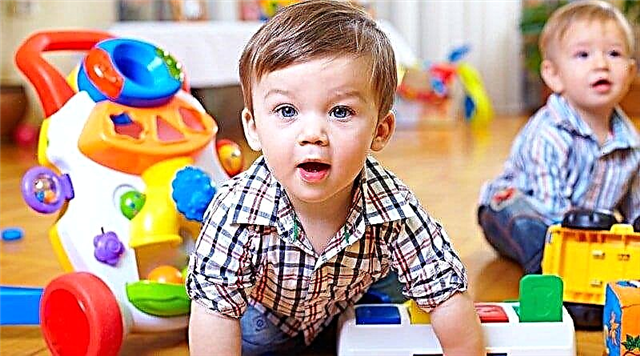
Women who are thinking about artificial insemination are concerned about the question - up to what age can IVF be done. The compulsory health insurance policy allows a woman to enjoy the right of free IVF up to 39 years old. In other cases, when we are not talking about government subsidies of the procedure, the issue of the maximum permissible age is not as simple as it might seem. Let's try together to find the answer to it within the framework of this article.
Influence of age
In vitro fertilization is fertilization in a laboratory setting. With natural conception, the fusion of the egg (oocyte) with the sperm occurs in the ampulla of the fallopian tube. With IVF, this fusion is carried out outside the woman's body. Previously, her eggs are taken by the method of ovarian puncture, and the man donates sperm.

After fertilization, for several days, doctors monitor the development of embryos, after which the most viable of them are transferred to the woman's uterus, where, under a favorable set of circumstances, they are implanted and begin to develop, and pregnancy occurs.
A woman's age influences many factors in IVF. First of all, it is the quality of biological material. A girl is born with a supply of eggs for life. But the ovarian reserve depletes with age, it is influenced by the environment, bad habits, and toxins.
Thus, the quality of the eggs of a woman at 25 years old and a woman at 45 years old is different. Poor-quality oocytes increase the likelihood of having a child with severe malformations, chromosomal pathologies.
A woman's age is important for the successful implantation of a fertilized egg in the uterine cavity. The younger the woman, the more functional the endometrium of her uterus, the better its blood supply. In a woman over 35 years old, who has also undergone some inflammatory gynecological diseases, may have had abortions or surgery on the uterus, the endometrium may not be optimal for quick and successful implantation.


With age, hormonal levels change, which creates many problems not only with natural conception, but also with IVF attempts. Without hormonal stimulation, the procedure is rarely successful. Even if the implantation is successful, the “aged” pregnant woman has a higher risk of miscarriage, frozen pregnancy, premature birth, placental abnormalities from previa to detachment. That is why the age factor is one of the most important when choosing an IVF protocol and in each case it has its own characteristics.
The most successful, according to statistics, are IVF protocols, which a woman under 30 enters into. The probability of success of the protocol on the first try is at the level of 50-60%. Until 35 years of age, the percentage of successful first protocols does not exceed 35-40%. At 38-39 years old, a woman has about 25% chances of getting pregnant on the first attempt at in vitro fertilization.
After 40 years, the probability of getting pregnant the first time with properly performed IVF and a correctly selected by the doctor stimulation scheme is about 7-10%. At 46-47 years old, such a probability for a woman decreases to 3%, and at 50 years old - to 1%.


It should be noted right away that reproductive specialists do not give a guaranteed result of success at any age. There are no guarantees and cannot be. Sometimes pregnancy, despite all the efforts of the doctors and the patient, does not occur even after 8-10 attempts at the age of 35 years, and sometimes it occurs literally on the first attempt after 40 years.
IVF can be done at any age up to 50-55 years, if there is a desire and financial capabilities, but at each age fundamentally different schemes and protocols can be recommended.


IVF with your own egg
For such fertilization, the eggs of the woman herself are used. This method is suitable for those who have preserved ovarian functions, that is, the maturation of the eggs continues, which is expressed in a regular menstrual cycle without features. It is clear that at the age of 45-50, not every woman has a preserved menstrual cycle, and even if this is so, the quality of oocytes leaves much to be desired, and their number is insufficient to increase the chances of a successful pregnancy.
The woman's eggs are taken either after stimulation with hormones, or in a natural cycle, tracking the moment of follicle maturation by ultrasound. Average statistical success rates depending on age are as follows:
- up to 35 years old - no more than 35% with a stimulated protocol and no more than 15% in the natural cycle;
- up to 40 years - no more than 25% with a stimulated protocol and no more than 10% in the natural cycle;
- after 40 years - no more than 10% with a stimulated protocol and no more than 5% in a natural cycle without stimulation.

Women tend to overestimate their reproductive capacity. Until the age of 30 it seems that everything is still ahead, and pregnancy can wait, besides, the doctor will honestly answer the question that it is theoretically possible to do this even at 50 years old. Therefore, especially busy, busy women and their careers do not rush to IVF. Then, at the age of 45 and older, it turns out that the ovarian reserve is negligible, and the quality of oocytes does not allow getting normal and strong embryos.
If you want to conceive a child using your own egg, you should not delay contacting a doctor - every year you have lived reduces the chances of positive results. Doctors consider the age limit for conception with their own egg to be 40-43 years. This does not mean that the procedure will be refused if the woman is 45 years old, but she will be honestly warned about negligible chances of success.
If it is not possible to become pregnant in a timely manner, you can resort to the procedure for cryopreservation of eggs, so that later you do not have problems with your own high-quality biomaterial.


Donor egg
Donor eggs will be offered to a woman at any age if she does not have her own in principle, for example, in the absence of ovaries or genetic pathologies associated with the absence of oocytes in the follicles (absolute anovulation). Also donor oocytes are offered to women of any age, if the quality of their own cells does not allow doctors to obtain high-quality embryos for replanting.
With the onset of menopause, a woman can also become a mother only if a fertilized donor egg is implanted. A child born from such a pregnancy will not be genetically related to the mother, but if the husband's sperm was used, he will be genetically related to the father.
This kind of IVF has certain advantages for older women. Firstly, such embryos take root better, and the likelihood of pregnancy is much higher than when fertilizing their own oocytes of inadequate quality. The risk of having a child with genetic abnormalities also decreases and practically tends to zero, because only young, healthy women with good genetics and health are selected for egg donation. Secondly, the woman does not have to undergo a hormonal "shock" when stimulating the ovaries.

Usually, such IVF is recommended for women over 45 years old, but age is not the main thing here, much depends on the health and ovarian reserve of the expectant mother.
Donor embryo
This method of reproductive assisted medicine is recommended in cases of total male infertility with simultaneous infertility in a woman. If it is not possible to obtain female oocytes of good quality in the required quantity, and at the same time the spouse's sperm are not able to fertilize the egg even by the ICSI method (with the introduction of sperm with a thin needle under the egg membrane), the method is recommended at any age.
In the case of genetic incompatibility of partners, pregnancy cannot occur even if both husband and wife are completely healthy and their biological material is of excellent quality. And then donor embryos also come to the rescue.
The method is recommended for women with a normal state of the uterus, its endometrium, in order to increase the chances of success. Donor embryos take root, in practice, somewhat worse than their own, because such an embryo is not even half alien to a woman's immunity (as is the case with IVF with its own egg or natural conception), but completely.
However, in cases of infertility that were previously considered completely hopeless, it is this technique that allows the couple to find the joy of being parents.


For women over 40
As we already understood, age restrictions are not an obstacle. The state of health and the causes of infertility are important in each individual case. Therefore, "mature" women may well plan motherhood, the attending physician will certainly select for each individual IVF scheme.
There are several conditions under which a woman after 40 years in Russia will be provided assisted reproductive medical services without significant restrictions.
- Egg stock assessment. For this, an ultrasound scan is performed and blood is donated for a hormonal profile.
- The absence of chronic diseases that interfere with the onset and gestation of pregnancy.
- Portability of hormones to be used in the protocol.
- Good quality partner sperm or donor sperm.

As a rule, by the age of 40, a woman has one, or even several, chronic diseases. They can become a significant obstacle, and in some cases even threaten the life of a woman in case of pregnancy and childbirth (for example, heart failure, kidney, liver, tumor). Therefore, the main feature of IVF for "age" patients is a more extensive and detailed medical examination, which is to be passed at the preparatory stage.
In addition to the main list of analyzes and studies, a woman after 40 will definitely need to visit genetics. Since the risks of giving birth to children with genetic abnormalities after 40 years significantly increase, the embryologist performs a pre-implantation study of embryos, weeding out all embryos with chromosomal abnormalities and leaving only healthy embryos. A geneticist will be able to calculate the likelihood of a healthy offspring in a particular woman and make a karyotyping test.
At the age of 40+, women admitted to in vitro fertilization almost in all cases require hormonal stimulation. Your own hormone levels may not be enough not only for the maturation of the eggs, but also to support the endometrium before implantation. For the schemes, doctors try to use the mildest and sparing drugs that will not harm the woman and will not cause ovarian hyperstimulation.


Since "age" women and men are rather elderly, it is very often necessary to use IVF + ICSI. That is, fertilization is not "trusted" to Mother Nature, but only one of the healthiest and strongest sperm is selected in order to carefully introduce it under the oocyte membrane, "saving" sperm from the need to "storm" the oocyte membrane.
The most difficult decision for women is to use donor eggs or donor embryos. In Russia, unlike Israel, donation between close relatives is not prohibited, so a person with whom a woman has a blood relationship, for example, a younger sister, may well “give” eggs for the procedure. However, you cannot use the eggs of an adult daughter for IVF of a mother, if the daughter was born from the same husband, whose sperm is planned to fertilize oocytes in this protocol. This is incest, and the risk of genetic pathologies will increase significantly.
A woman over 40 is strongly encouraged to visit a psychologist or psychotherapist during IVF planning to help reduce stress and prepare the woman for possible failure.
Due to age, there can be a lot of attempts, and it is best to prepare for this in advance, so that later every unsuccessful attempt would not be a personal drama for the woman and her family members.

Reviews
Women who decide on IVF after 40 years are very often subject to public condemnation and even censure. They are accused of selfishness (giving birth is one thing, raising something else, which is not easy at that age), they laugh at them, especially if their older children have already grown up and live with their families, and the “grandmother” again wanted to become a “mother”.
Therefore, "aged" pregnant and planning women rarely leave frank reviews and share their joys and failures on thematic forums. The older a woman is, the more difficult it is for her to admit her desire to become a mother again or to feel the joy of motherhood for the first time. Because of this attitude, some even refuse the opportunity to do IVF, despite their strong desire and financial capabilities.
Psychologists recommend paying less attention to negative statements. This is your life and yours alone. If IVF will contribute to the addition of happiness in her, in no case should you abandon the procedure for the sake of ephemeral public opinion.


About the age of women when you can still use the IVF service, see below.



